In addition to giant technology companies such as Tesla, Microsoft, and Google, companies in the music industry are now starting to adopt blockchain in their system. What are they?
Over the years, the world has evolved so much in many fields, including the technology behind the music industry. From selling physical albums and phonographs to the digitalization of the MP3 format, music has clearly experienced a drastic revolution.

Today, millions of customers prefer to discover and listen to music via streaming services like Spotify, Apple Music, and SoundCloud; all of which have given a breath of fresh air in terms of music accessibility and consumption. However, even with these platforms, many artists are still struggling to get a fair share from the music they've created. Some of the problems come from the low transparency of the middlemen and lengthy royalty payment processes.
What many people may not realize is that blockchain technology can actually be the key to overcoming such issues. In fact, the use of decentralized technology in the music industry has been adopted by several artists such as Lupe Fiasco, Gramatik, and Pitbull. They argue that blockchain can give musicians fair royalty payments and eliminate expensive intermediaries. But how is that possible?
Contents
The Role of Blockchain in the Music Industry
A blockchain refers to a digitally distributed, decentralized, public ledger that stores data in a certain network. Every transaction made within the network is stored in the public , so every network member has an exact copy of the information.
This makes blockchain capable to solve the low transparency issues within the music industry and give artists a bigger control over their art. By decentralizing the process, artists no longer need to use a middleman to distribute their music, thus putting more money in their pockets.
Moreover, you might have heard of the famous Non-Fungible Tokens (NFT). It is a digital token that represents digital or offline assets such as paintings, videos, and of course, music. Since the token is non-fungible, that means each NFT is unique and irreplaceable. As a result, NFTs can provide proofs that the token holder really owns the original work. This naturally creates scarcity that could increase the value of the work as well.
That being said, musicians can create NFTs for their songs and album artwork and sell those products. They can immediately receive the royalties whenever someone buys the NFT. The American DJ 3LAU, for instance, has successfully sold various NFTs of his album Ultraviolet in an auction back in February 2021.
Seeing the new opportunity, many music companies began to adopt blockchain technology in their system. Thanks to that, many artists can now be compensated with a decent royalty and receive the payment rather instantly. Most blockchain-based music companies like to pay their artists in cryptocurrency right away. Here are some of the best ones to check out.
1. Digimarc
Digimarc is an Oregon-based company that creates intellectual property licensing solutions for audio, visual, and image assets. The company basically integrates blockchain with digital audio watermarks such as the "Digimarc Barcode" in order to help in the licensing of music. The Digimarc Barcode basically uses metadata to trade music sources, measure usage, and estimate payments.
The company claims that this can help overcome many challenges in the music industry in terms of rights management and royalty transaction processing, as well as ensuring the artists are compensated appropriately for their work.
See Also:
It's worth mentioning that Digimarc has a renowned global patent portfolio with over 1,100 granted and pending patents, so it's considered safe and reliable. Additionally, Rovio, the production company of "The Angry Birds Movie", used the Digimarc Barcode in the film and DVD release in order to track interactions in the Angry Birds Action! app. In 2015, Digimarc even earned an Emmy Award for Steganographic Technologies for the Audio/Video category.
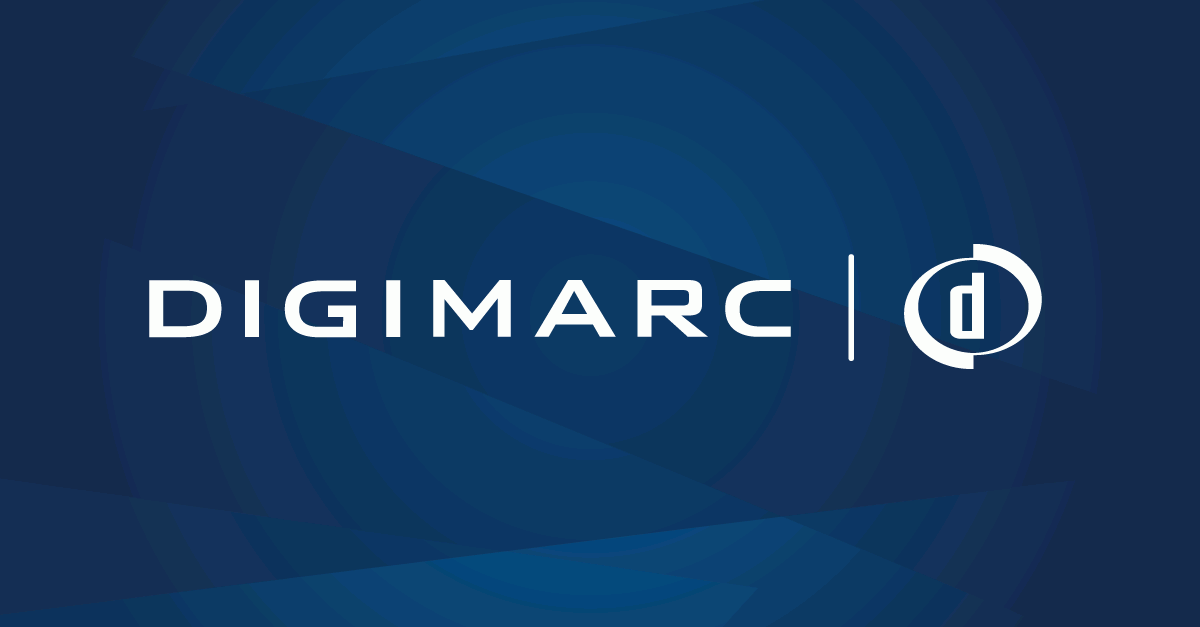
2. Vezt
Vezt is the first mobile app for music rights marketplace where music fans can directly fund their favorite artists, songwriters, and producers. In return, they will get the right to receive royalties from the songs or recordings that they like listening to. Vezt is able to collect those royalties on behalf of fans from performing right organizations, publishers, and record labels. Then, they track the payments using the company's proprietary blockchain technology.
On the other hand, Vezt also facilitates artists and songwriters to share a part of their song's earnings in exchange for royalty-based funding through the use of an Initial Song Offering (ISO). The ISO includes the date and time when royalty rights will be made available to the general public, as well as raising awareness, demand, and opportunity for the artist.
Vezt has acquired the rights of songs recorded by several top-tier artists such as Jay-Z, Drake, Kanye West, and John Legend among many others.
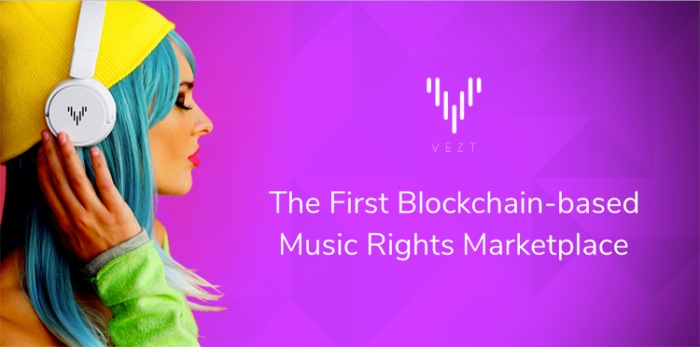
3. Open Music Initiative (OMI)
The Open Music Initiative is a non-profit initiative by various experts who are passionate about music. It aims to create an open-source protocol for the uniform identification of music rights holders and creators. It uses blockchain technology to identify and pay fair royalties to rightful music right holders and originators.
According to the website, OMI claims that their system would be able to simplify how music right owners are recognized and compensated, thus creating a more sustainable and healthy environment in the music industry. Red Bull Media, Soundcloud, and Netflix are a few companies that have joined OMI. In addition, the company also received assistance from Sony, YouTube, and Spotify to modernize the royalty payment processes.
4. OPUS
OPUS is a decentralized platform where users can discover and listen to music as well as directly support their favorite artists. Not only that, but users can also receive royalties by making playlists that could spread the music throughout the platform. The platform is built on the Ethereum blockchain and the tracks are all stored in the Interplanetary File System (IFPS) in order to minimize the server costs.
The goal of the company is to solve the issue of unfair royalty distribution within the music industry. Therefore, OPUS offers a much higher royalty share for artists and musicians compared to its competitors. While most streaming platforms only provide artists with less than 20% of the streaming revenue, the expected revenue on OPUS is around 90% and above.
See Also:
5. Musicoin
Musicoin is a music streaming platform that facilitates the creation, distribution, and consumption of music in the form of digital files and streams. The company has a blockchain structure that allows transparent and secure peer-to-peer music transferring. Musicoin has its own currency called COIN, which basically supports all trade and music-related purchases on the platform.
With Musicoin, artists can distribute their work without the use of any third party, so that means they will receive 100% of all the music revenue. Another advantage is that Musicoin has integrated with Volareo smart speakers so that artists can be compensated instantly.
6. Mycelia
Mycelia is a London-based organization that's made up of a group of artists, musicians, and music fans. Their goal is to empower other artists in the music industry. By using blockchain technology, they simply want to make sure that all artists and musicians are appropriately compensated and acknowledged in a broader scope.
In order to make sure that all participants are treated equally, the company released a Creative Passport that contains all information about a specific song. That includes IDs, acknowledgments, business partners, and payment method options. One of the notable uses of Mycelia's service is the release of Imogen Heap's song called Tiny Human on the Ethereum network.
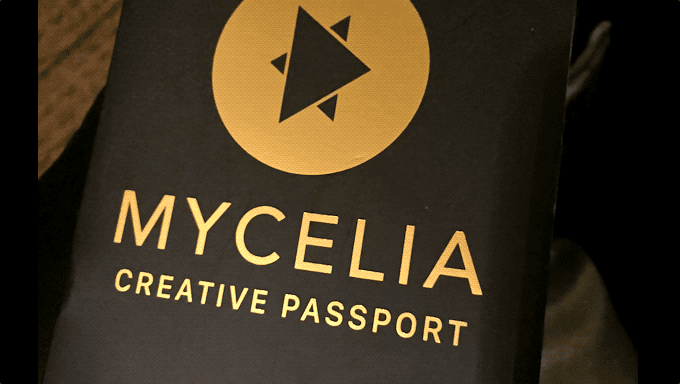
7. Blokur
Blokur is a reliable source of global publishing data for the management and monetization of music that is based in the United Kingdom. What's interesting about this company is the uses of both AI and blockchain technology to mix different sources of rights data in one . On one hand, the blockchain allows music publishers to catalog their work on the platform and have it accepted by the community. On the other hand, the company's AI must ensure that the artists get fairly compensated and scan the crucial information that could resolve any source disputes. Up until now, at least 50,000 songwriters and 7,000 publishers have used Blokur's service and received the payment they deserve.
8. Ujo
Ujo offers a decentralized technology that could build a of music ownership rights and automate royalty payments. In this platform, artists can upload their original works, self-publish, control license choices, and manage distributes. In addition, the Ethereum platform also simplifies the process of obtaining music right ownership by allowing artists to be paid directly via smart contracts and cryptocurrency. Ujo has collaborated with several well-known artists, including Imogen Heap, RAC, and Girrafage.
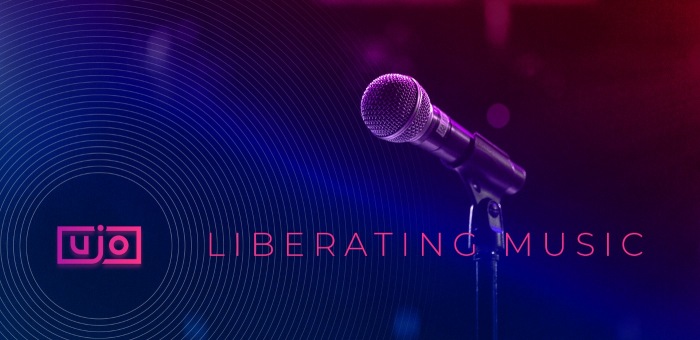
In a Nutshell
Blockchain technology offers many functional abilities in various areas, including the music industry. Many music enthusiasts have worked together to create a better environment for artists and make sure that the royalties are distributed in the right manner.
By using decentralized blockchain technology, artists can freely distribute their works without having to worry about transparency issues anded payments. Thus, this makes blockchain music companies more relevant than ever. Those companies even offer the opportunity for music fans to directly support their favorite artists and earn a royalty share out of the music revenue.
The existence of blockchain music companies can be beneficial for various groups of people if done correctly. Long story short, there is a possibility for blockchain technology to integrate more with the music industry along with other fields. Although the path is still unclear, this development is definitely worth keeping an eye on, especially for indie artists.
Alongside the music industry, blockchain also helps establish a huge opportunity in Metaverse, which is highly anticipated as it shows what the future of the internet would look like.

 Dedicated FREE FOREX VPS
Dedicated FREE FOREX VPS Free FOREX Virtual Private Server
Free FOREX Virtual Private Server MT4 Demo Contest, Get $500
MT4 Demo Contest, Get $500 Sign Up for an Account, Claim 60% Deposit Bonus
Sign Up for an Account, Claim 60% Deposit Bonus Free MT4/MT5 VPS 2024
Free MT4/MT5 VPS 2024 Send E-mail and Get Free Merchandise
Send E-mail and Get Free Merchandise $1K Refer a Friend Bonus for Pepperstone Pro clients
$1K Refer a Friend Bonus for Pepperstone Pro clients Maximize Your Earnings with 100% Deposit bonus
Maximize Your Earnings with 100% Deposit bonus Trade to Win, $5,000 Monthly Demo Contest
Trade to Win, $5,000 Monthly Demo Contest Claim 30% + 15% Deposit Bonus from LiteFinance
Claim 30% + 15% Deposit Bonus from LiteFinance
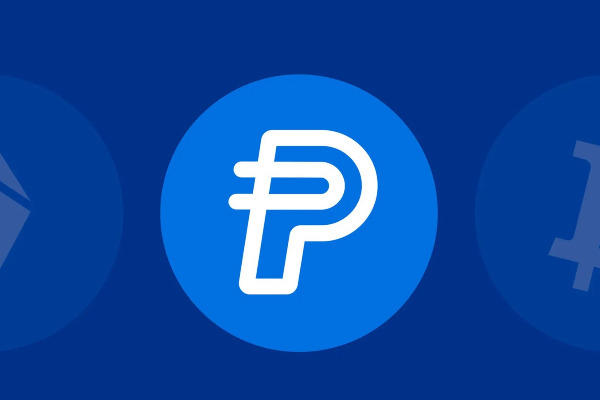
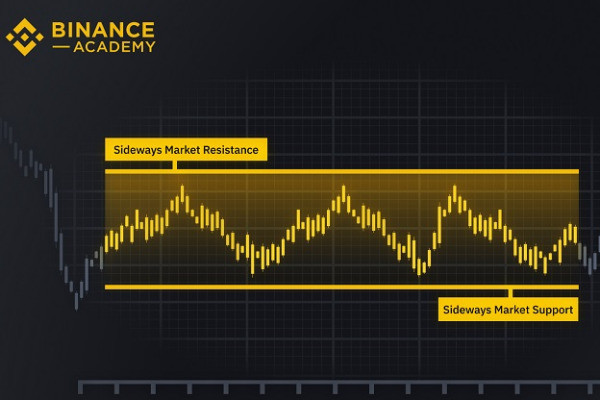
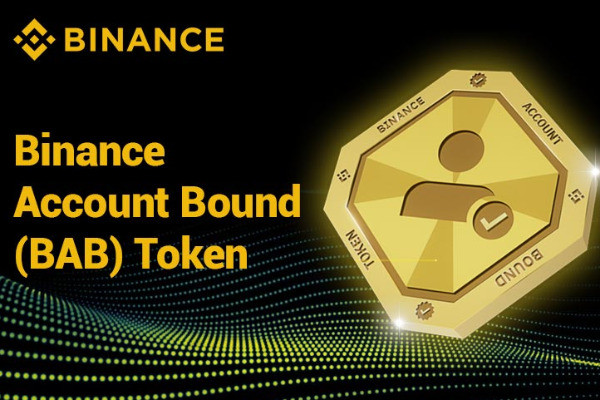



 Bitcoin
Bitcoin Ethereum
Ethereum Tether
Tether BNB
BNB Solana
Solana USDC
USDC XRP
XRP Dogecoin
Dogecoin Toncoin
Toncoin Cardano
Cardano